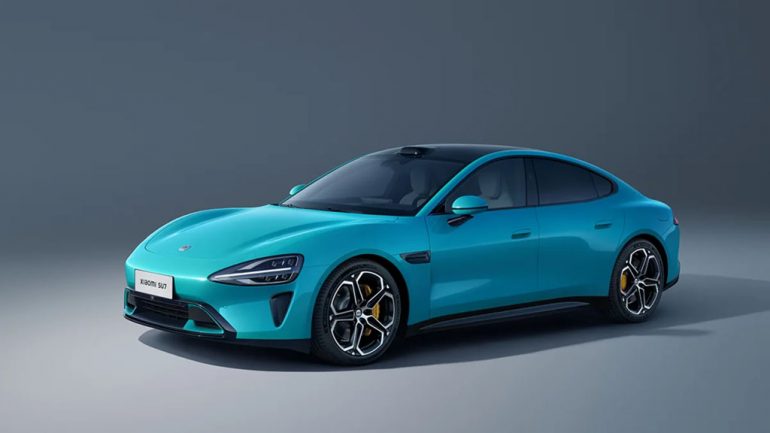
In a move poised to reshape the automotive landscape, the U.S. Commerce Department, under the Biden administration, has proposed a sweeping regulation aimed at limiting the presence of Chinese-made software and hardware in connected vehicles on American roads. If passed, this would effectively bar most Chinese cars from entering the U.S. market, sparking discussions about national security, trade relations, and the future of automotive technology.
The core of this proposal stems from concerns over national security, specifically the potential for data collection by Chinese companies through connected vehicles. These vehicles, which now dominate the market, rely heavily on onboard network hardware, enabling them to communicate with external devices and systems, including internet access. This connectivity, while advancing the convenience of modern vehicles, poses potential risks. According to U.S. officials, such systems could be vulnerable to foreign manipulation, leading to remote control or surveillance by adversarial nations.
Also, don’t forget that you can get discounted new car pricing with a free quote through qualified local dealer partners.
Commerce Secretary Gina Raimondo highlighted the gravity of the situation, emphasizing the dangers of foreign adversaries having control over vehicle systems: “When foreign adversaries build software to make a vehicle, that means it can be used for surveillance or remotely controlled, which threatens the privacy and safety of Americans on the road.”
In a worst-case scenario, Raimondo suggested that foreign entities could theoretically seize control of numerous vehicles at once, disrupting U.S. infrastructure, causing accidents, or even using vehicles as weapons in mass road shutdowns.
Under the proposed regulation, testing of autonomous and connected vehicles by Chinese automakers would be halted, and Chinese-made software and hardware would be prohibited in U.S.-bound vehicles starting with the 2027 model year for software and the 2030 model year for hardware. This blanket ban would extend to foreign adversaries beyond China, such as Russia, preventing potentially harmful software and hardware from being integrated into vehicles operating in the U.S.
Jake Sullivan, White House National Security Adviser, elaborated on the risks, stating, “With potentially millions of vehicles on the road, each with 10- to 15-year lifespans, the risk of disruption and sabotage increases dramatically.” He pointed to evidence suggesting that China has already positioned malware within critical American infrastructure, raising fears of a broader, long-term threat.
China, unsurprisingly, has voiced strong opposition to the proposal. The Chinese Embassy in Washington has urged the U.S. to adhere to international trade rules and warned that the proposal would harm bilateral trade relations. “China will firmly defend its lawful rights and interests,” the embassy stated, reinforcing the potential for a diplomatic and economic standoff between the two countries.
At the same time, American automakers and global manufacturers are expressing concerns about the practical implications of the proposed regulation. The Alliance for Automotive Innovation, representing major players such as General Motors, Toyota, Volkswagen, and Hyundai, pointed out that changing the existing software and hardware systems in connected vehicles is no small task. These components are often developed globally, including China, making it difficult to immediately assess how much of U.S. vehicles rely on Chinese-made parts.
With only 30 days for public comment on the proposed regulations, the automotive industry faces a tight timeline to voice concerns and assess the potential impacts on supply chains, manufacturing processes, and future vehicle designs.
While the regulation would undeniably hit Chinese automakers hard, there is a provision that allows them to seek “specific authorizations” for exemptions. Whether this will soften the impact or simply create additional bureaucratic hurdles remains to be seen. As of now, the U.S. government is focused on protecting its infrastructure from foreign threats, even if it means reshaping the automotive market and trade policies.
The Biden administration’s proposal marks a significant shift in how the U.S. addresses technology and trade concerns, especially in industries as critical as automotive. With the potential to ban Chinese vehicles outright from American roads, it’s clear that the focus is squarely on protecting national security, even at the cost of long-standing trade relationships.
As we await the final decision on this groundbreaking proposal, one thing is certain: the automotive world is about to experience a seismic shift, where technology, security, and international politics intersect in ways we have never seen before.
Will American consumers see fewer Chinese vehicles in the coming years, or will the automotive industry adapt to meet these new regulations? Only time will tell, but the road ahead is sure to be full of challenges and transformation.
As the U.S. tightens its grip on automotive regulations in response to security threats, the potential ban on Chinese vehicles signals a monumental shift in how the world’s largest car markets interact. For automakers and consumers alike, this is a moment of reckoning that could alter the future of transportation in America for years to come.